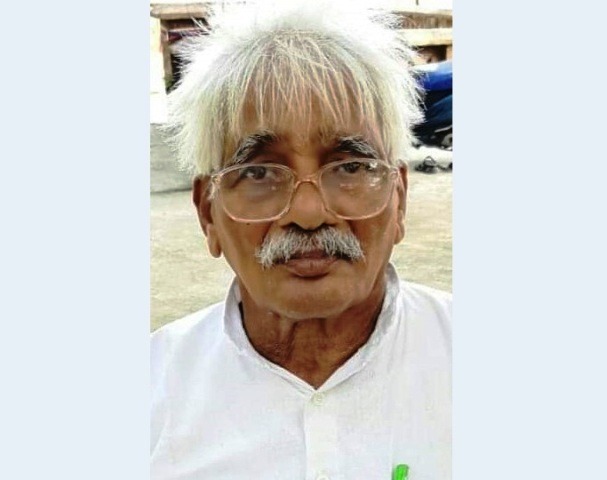Sarvodaya Leader of Odisha, Rabi Dash Passes Away In Cuttack
Cuttack: Veteran communist activist turned Sarvodaya leader Rabi Dash, breathed his last in Cuttack on Tuesday, at 7.45 AM, after prolonged heart-related complications. He is survived by his three daughters who are also engaged in social service activities.
As a former prominent Naxalite activist Rabi Dash had involved himself in peaceful economic transformation of tribal areas. This Naxalite turned Sarvodaya leader of Odisha, was a unique personality. During his fight against poverty in the Kalahandi region where he initiated Sarvodaya activities he approached the Supreme Court to challenge the administrative failures on behalf of the Adivasis. BBC had also covered his selfless fight in a report on south Asia.
Rabi Dash wore a khadi kurta and dhoti, and with his hand-spun khadi side bag on his shoulder, he used to travel hundreds of kilometres by bus and walking long distances to reach the impoverished tribespeople living in the remotest Kalahandi villages. Rabi Dash believed that it is spinning khadi that can alleviate the misery of the people.
During college years he became a member of the CPI and wrote for its New Age. By 1962, he concentrated on writing popular science books, and in April 22, 1969, the CPI (ML) was formed with a 14 founder member-central committee, Charu Mazumdar being its general secretary. This committee included Rabi Dash. Police arrested Dash in 1971 near his village and was in jail for long eight years before release. When Kalahandi starvation deaths hit the headlines in 1985, Ram Devi, who was heading the Gandhi Smark Nidhi at that time, requested Rabi Dash to make inquiries. Rabi Dash report was accepted by the apex court which confirmed the starvation deaths. Thus for Rabi Dash; Kalahandi became his second home where he formed the Kalahandi Vikash Parishad (KVP) under the Sarvodaya movement. He initiated cotton cultivation in Kalahandi region, which provide employment to the poverty stricken, mostly scheduled tribes and castes and mostly women. He used to lament that the tribespeople remained without the pattas of land they have been tilling for generations. He highlighted the bureaucratic neglect, tortures by police and officials and issue of drinking water. His simple logic was that “unless the basic issues of hunger and livelihood are addressed, the Naxal or Maoist threat will continue to exist”
Remaining devoted to serve the ‘weaker sections’ even at the age of 80, Rabi Dash believed in an equitable society as strongly as he did back in his younger age.


Comments are closed.